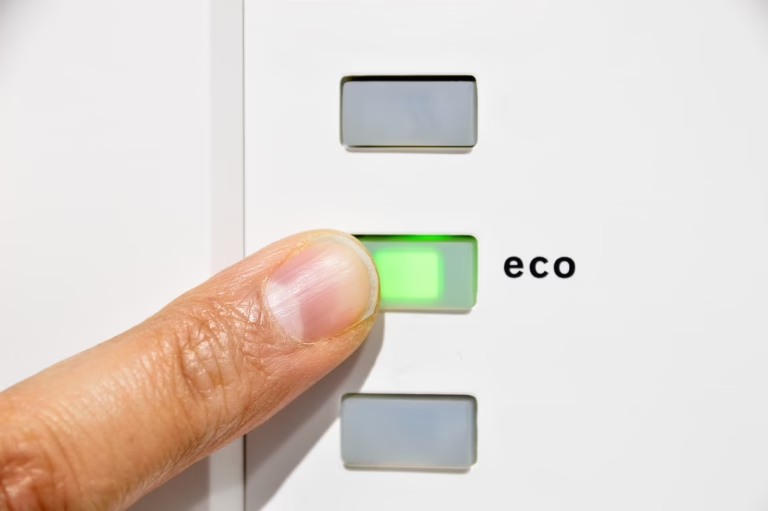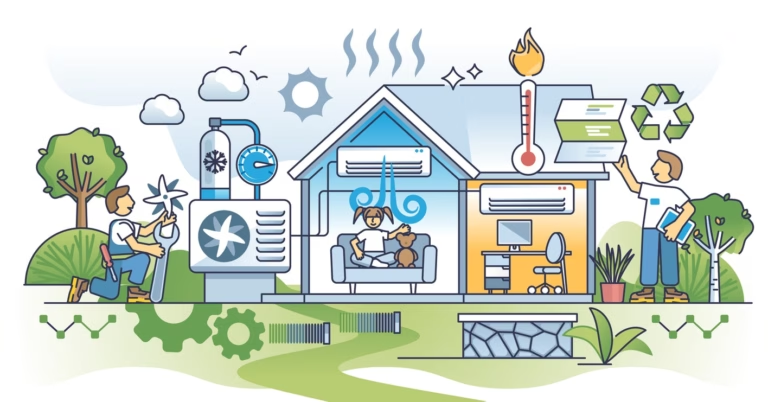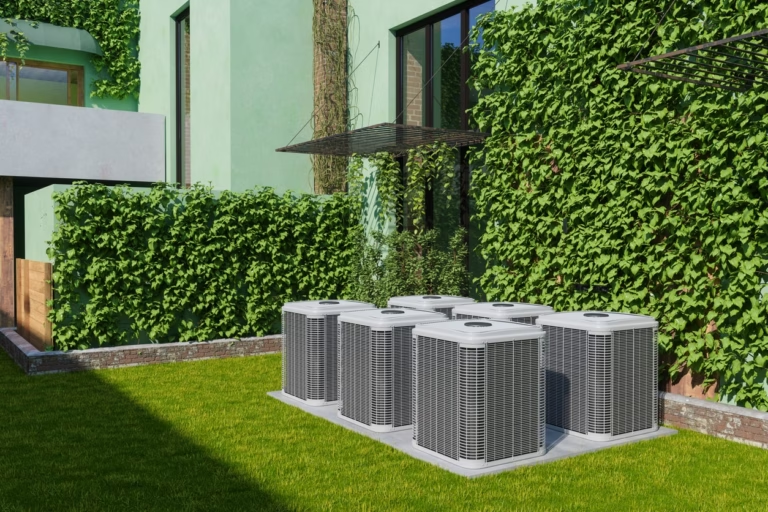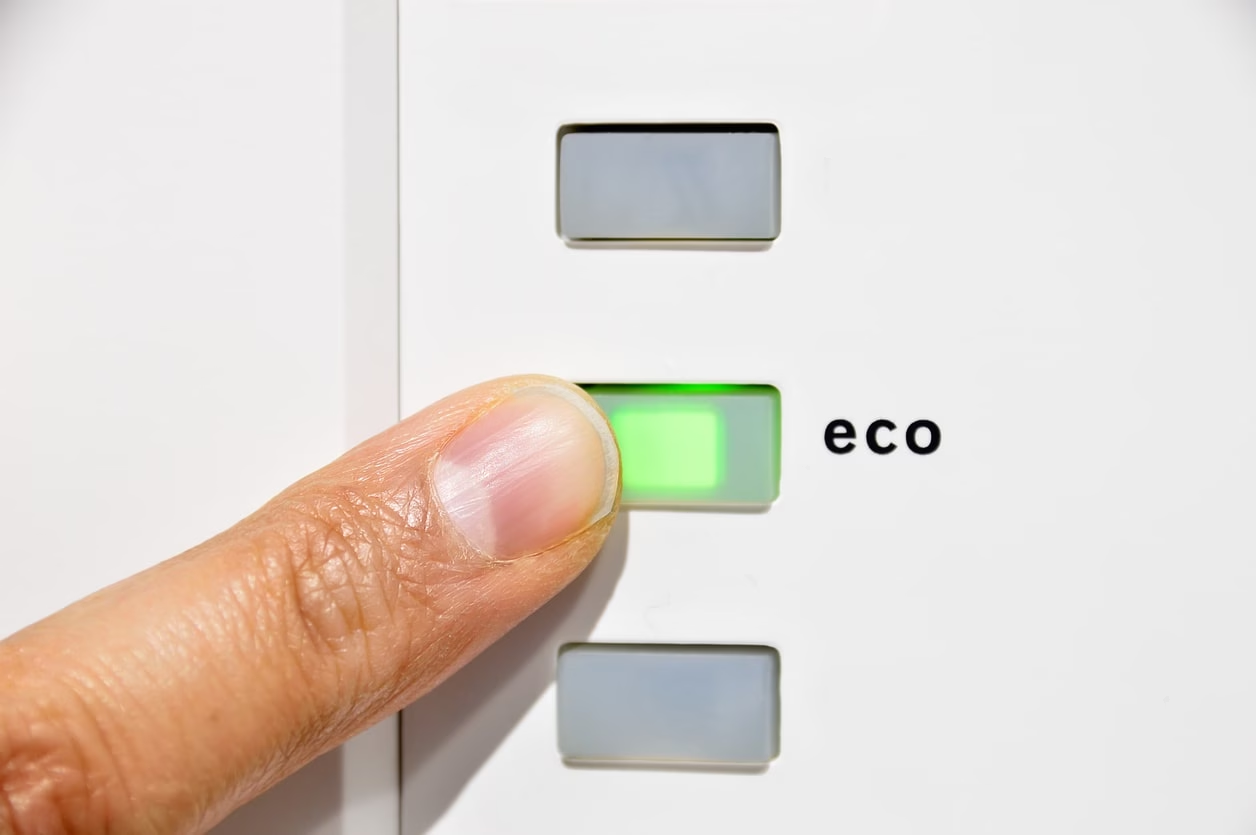Today, every industry feels the urgency for sustainable practices, and the heating, ventilation, and air conditioning (HVAC) sector is no exception. With climate change posing major challenges, Energy efficient HVAC solutions are vital.
Traditional HVAC systems account for nearly 40% of energy use in commercial buildings, and the refrigerants used in them, such as hydrofluorocarbons (HFCs), are potent greenhouse gases. The push for sustainability in HVAC is a must, not a trend.

How the HVAC Industry Is Driving Sustainability
The HVAC industry is making strides toward reducing its environmental impact through technology and renewable energy integration.
Renewable Energy Integration
Renewable energy is transforming HVAC systems, helping cut energy use and greenhouse gas emissions while lowering costs. Key solutions include:
- Solar-Powered HVAC: Solar panels can power HVAC systems, offering an eco-friendly way to reduce energy bills and carbon footprints.
- Geothermal Systems: By tapping into the earth’s stable temperatures, these systems efficiently heat and cool buildings with minimal environmental impact.
- Wind-Powered HVAC: Wind energy is emerging as a renewable option in certain regions, providing clean power for heating and cooling systems.
New Innovations Making HVAC More Sustainable
Advancements in technology are making HVAC systems smarter and more efficient. For example, smart HVAC systems can automatically adjust settings based on occupancy or weather conditions, cutting energy use without compromising comfort. Other advancements include:
- Environmentally friendly refrigerants that replace harmful HFCs.
- Modular systems that allow for easier repairs and upgrades, reducing waste.
- Heat recovery technology, which captures and reuses heat, improving overall efficiency.

From Industry to Home: What You Can Do
While the HVAC industry is adopting large-scale sustainable HVAC solutions , homeowners can play a critical role in creating greener spaces. Many of these changes start with your existing HVAC system.
Extending HVAC sustainability
One of the easiest ways to reduce your environmental impact is to extend the life of your HVAC equipment. Using high-quality parts and upgrading to smart thermostats can reduce wear and tear, helping systems run efficiently for longer. A well-maintained system not only saves money but also reduces waste by delaying the need for replacements.
The Importance of Regular Maintenance
Keeping your HVAC system in top shape ensures it operates efficiently, which is better for the environment and your wallet. Simple maintenance steps include:
- Filter Replacement: Clean or replace air filters regularly to improve airflow and energy efficiency.
- Leak Checks: Seal duct leaks to prevent energy loss and ensure conditioned air reaches its destination.
- System Inspections: Professional inspections can identify inefficiencies and prevent costly repairs.
- Thermostat Calibration: Ensure thermostats are accurately calibrated to avoid unnecessary energy use.
- Coil Cleaning: Keep coils clean to maintain optimal heat exchange and system efficiency.
Best Practices for Home Energy Savings
Beyond maintenance, you can take additional steps to minimize energy use at home:
- Optimize Thermostat Settings: Set energy-efficient temperatures, especially during unoccupied hours, and consider using programmable or smart thermostats.
- Seal Your Home: Close gaps around windows and doors to keep conditioned air from escaping.
- Use Ceiling Fans: Circulate air with ceiling fans to reduce the load on your HVAC system.
- Clear Vents and Registers: Make sure nothing blocks airflow from vents or registers.

Building a Sustainable Future Together
The HVAC industry is paving the way toward a greener future, but sustainability requires collective effort. By combining renewable energy and smart technologies with simple, practical steps at home, we can all contribute to reducing our environmental impact.
At Progressive Air, we’re here to help you make sustainable choices for your HVAC needs. Contact us today to learn more about energy-efficient upgrades, routine maintenance, and how you can join the movement toward a more sustainable future.

